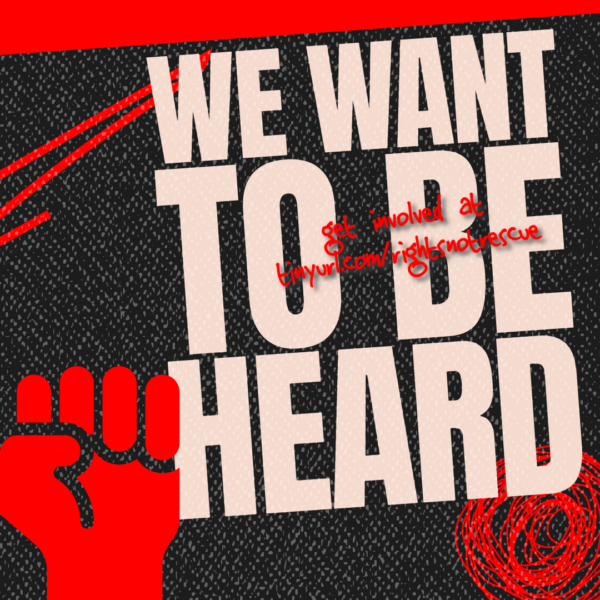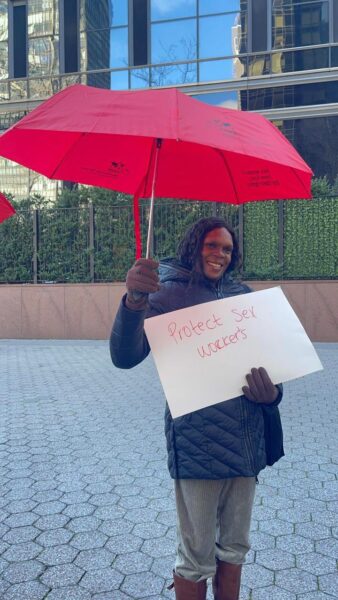As we prepare for the 2025 Commission on the Status of Women (CSW69) we invite advocates and organizations committed to the rights of sex workers to join our working group. The group is managed by the Sex Worker Coalition and draws on the access provided by one of our members’ ECOSOC status to apply for events and submit statements. Join us.
Sign up here: https://forms.gle/L2D2EzuT36cuuvYW8
The direct email for the working group is swrworkinggroup@gmail.com
Below is our statement sent in advance of the CSW69 to UN Women and will let folks know more about sex workers’ long term and engagement and why you should join us in the work we are doing.
https://docs.google.com/document/d/1cNOWPYgRPwPzbDNRGznVsQ_RzE9jFFK6/edit?usp=sharing&ouid=104027052907103958442&rtpof=true&sd=true
This Written Statement is made in collaboration with the Sex Worker Coalition, a group of global multi-organizational Sex Worker rights groups, including Desiree Alliance, New Jersey Red Umbrella Alliance, The BSWC, The Outlaw Project and the Best Practices Policy Project. Our advocacy focuses on gender-related and human rights-related processes, fully participating in several United Nations committees such as the Commission on the Status of Women, CEDAW, CERD, and the Generation Equality process.
We are excited and honored to celebrate the thirtieth anniversary of the Fourth World Conference on Women in Beijing in 1995 (Beijing +30).
There are several specific messages we would like to convey to both the Commission on the Status of Women and the world of advocates who attend and observe the Commission as an annual event.
Sex Workers have been present and active in developing the Beijing Declaration and Platform for Action, and have attended and participated in every Commission on the Status of Women. Today we honor every one of our colleagues who has, often at significant personal and community risk, raised up the rights of Sex Workers and defended the rights of allied communities who we often also represent. This includes fighting for our rights as Transgender people and people with expansive or non binary experiences of gender, as people with disabilities, as Black, Indigenous, and People of Color, parents and youth, and people who have experienced incarceration.
Sex Workers’ contributions to the Beijing Declaration and Platform for Action made the document more inclusive and a stronger rights-based framework for all. Sex Worker representatives came to Beijing with a diverse, powerful set of agendas, with plans to transform how we think about the human rights impact of transnational capitalism and defend the rights of all workers. In particular, Sex Workers challenged the silencing of communities by anti-sex work and anti-trans advocates. Sex Workers participated in regional review meetings, offered expert testimonies, developed fact sheets, highlighted the violence of criminalization and used a myriad of worker and human rights-centered approaches. Furthermore, because Sex Workers were visibly represented and united with other constituencies, the Declaration and Platform for Action defend “women’s economic independence, including employment” and state that sexual and reproductive rights are essential elements of the “right to health” with goals to increase women’s power over their “sexual and reproductive lives”, and have more “influence in decision-making” as well.
Since our presence in Beijing in 1995, Sex Workers and our organizations have affirmed in partnership and alongside other civil society organizations – as well as alongside many State Parties – that “women’s rights are human rights.” We affirm today with this statement that Sex Worker Rights are human rights,Trans Rights are human rights, and Sex Work is Work. We declare our status as women who labor and demand equal rights and recognized equity in our work. Sex Workers uphold these principles through our own set of tenets that we lead and navigate our narratives of autonomy. Power leads movements to be the change we want to see and we can no longer silence, forget, or invisible those who are forced at the margins; our voices matter. We look forward to being welcomed safely and securely, with full participation and access to uplift Sex Worker voices at the Commission on the Status of Women in New York 2025 (CSW69).










